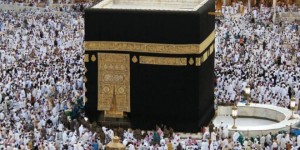Learning the Quran is a must for every Muslim man and woman. The Prophet Muhammad (PBUH) said that the best people are the ones who learn and teach the noble Qur’an. It’s like having a map that guides us through life’s journey. In Surah Al-Isra, Allah tells us that the Qur’an helps us do what’s right and gives good news to those who believe and do good things.
But, sometimes it’s tough to go to a physical Qur’an academy, especially for kids and females. Imagine if you live far away or have a busy schedule! That’s where Quran Reading Help comes in. We make it super easy for you to learn the Qur’an online. No more travel stress! You can learn right from your home in Melbourne, Sydney and Perth, Australia.
Imagine having an experienced teachers who help you understand the Quran Kareem better. We have got you covered with that. Our tutors let you learn the Koran at your own pace. And you can learn online across Australia!
So, if you want to learn the Qur’an Majeed with a live teacher and can’t attend a regular class, Quran Reading Help is here for you.
Get a 5-day free trial today!
Best Quran Schools in Australia
Here are some renowned Quran schools in Australia:
Australian Islamic College
Empowering students with Koran teachings, AIC in Perth stands as a beacon of knowledge, fostering strong connection with the Qoran Majeed.
Al Siraat College – Melbourne
Located in the heart of Melbourne, Al Siraat College offers academic and Quran teachings, to nurture individuals for this world and the hereafter.
Minaret College – Melbourne
At Minaret College, Melbourne, students learn the Holy Quraan in a diverse and dynamic environment.
Sydney Islamic College
In the bustling city of Sydney, SIC shines as a hub of Islamic learning, bridging tradition with innovation for students.
Darulfatwa Islamic High School
This school imparts Al-Qur’an teachings alongside comprehensive education, shaping future leaders.
Islamic College of Brisbane
In Brisbane, ICB instills a strong foundation in Quranic values, fostering a sense of community and a commitment to learning the Noble Coran.
Can’t travel to these Quran centers? No worries! Learn online with us!
Quran Teachers for Kids and Females in Melbourne, Sydney, and Perth
With our online Quran school, kids and females living in Melbourne, Sydney and Perth can learn the Holy Qur’an from the comfort of their homes. Our male and female Quran tutors are expereinced, punctual and dedicated to teach kids according to their level. All our tutors hold expertise in teaching children aged 4 to 15. They tailor their approach to cater to each child’s level of understanding, ensuring effective learning and engagement with the Holy Book.
Females, who are eager to learn the Qur’an Kareem but are unable to commute to a physcial Quraan center can now join online classes to learn in a comfortable environment. Learning from female tutors allows women to study confidently and discuss private matters. This applies to young girls as well, making their Quraan learning a smooth way without any difficulty. With Quran Teachers for Kids and Females in Melbourne, Sydney, and Perth, we aim to empower minds and hearts of kids and ladies through a holistic learning experience.
Online Quran Classes for Adults in Lakemba, Adelaide, and Brisbane
Although there are many Quran centers in Lakemba, Adelaide and Brisbance , however the path to learning can be hindered by various obstacles, including distance, time constraints, and the complexity of commuting. Quran Reading Help has the solution for that. We recognize the challenges and offer online Koran classes.
We believe that age should never be a barrier to learning, and our tailored approach ensures that adults can read, recite and learn Quran memorization at their own pace, comfortably. Whether you’re in Lakemba, Adelaide, or Brisbane, our online Qur’an classes for adults are designed to accommodate your busy schedule and provide a great way to connect with the Al-Qur’an teachings.
With us, you can transcend the barriers that may have previously hindered your Quran learning. Our online Quran classes bring the wisdom of the Qur’an Pak closer to you, allowing you to learn and understand it like never before.
Enroll now for a 5-day weekly trial class!


